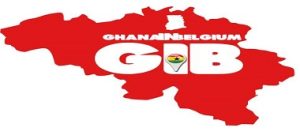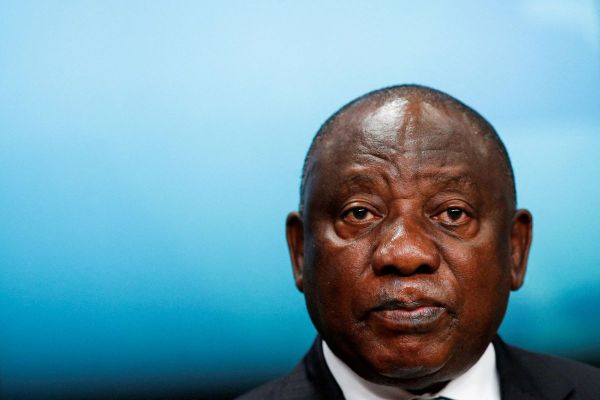
South Africa’s foreign ministry says the US ambassador has “apologised unreservedly” for claiming the country sold weapons to Russia.
On Thursday Reuben Brigety alleged a Russian ship was loaded with ammunition and weapons in Cape Town last December.
South Africa says it has no record of an arms sale and President Cyril Ramaphosa has ordered an inquiry.
On Friday the White House national security spokesman would not be drawn on details of the allegations.
But John Kirby said it was a “serious issue” and the US had consistently urged countries not to provide support for Russia’s war in Ukraine.
Writing on social media after meeting the foreign ministry, Mr Brigety said he was “grateful for the opportunity to… correct any misimpressions left by my public remarks”.
He said in the conversation he “re-affirmed the strong partnership between our two countries and the important agenda our presidents have given us”.
Meanwhile, a South African cabinet minister hit out at such “megaphone diplomacy”, saying South Africa could not be “bullied by the US”.
“It is the US which has sanctions against Russia… they must not drag us into their issues with Russia,” Khumbudzo Ntshavheni, a minister in the presidency, told public broadcaster SABC.
Her bullish comments followed a Kremlin statement saying President Vladmir Putin had spoken to his South African counterpart by phone and the two had agreed to deepen “mutually beneficial ties”.
There is no dispute that a Russian ship, known as Lady R, docked at a naval base near Cape Town last December – prompting questions from local politicians at the time. Whether the ship was supplied with arms before returning to Russia still needs to be established.
If the accusations are true, South Africa will have violated its own Arms Control Act, which commits to “not trade in conventional arms with states engaged in repression, aggression or terrorism”.
In the same act, South Africa describes itself as a “responsible member of the international community”.
South Africa is one of a handful of countries that has abstained from a number of UN votes on the conflict and has refused to publicly condemn Russia, insisting it is non-aligned on the matter.
For months the regional superpower has been saying it instead supports a mediated settlement to the conflict.
Supplying arms while claiming to be neutral would not only rubbish that stance but would leave South Africa with a lot to answer both to its citizens and the international community.
Some in the governing African National Congress (ANC) appear to have a lingering affection for Russia because of the then-USSR’s support for their fight against white-minority rule. But in present-day South Africa, many have been asking questions about whether this love affair truly serves South Africa’s interests.
Experts say the country has more in common and a much bigger trade relationship with the West. Some are worried about a possible economic impact if ties with the US strain further.
The country’s currency, the rand, which has been struggling for weeks as a result of months of rolling power cuts, weakened even further following the US ambassador’s accusations.
It is an additional problem that South African citizens can scarcely afford.
Source: BBC
google.com, pub-6336011652228911, DIRECT, f08c47fec0942fa0









